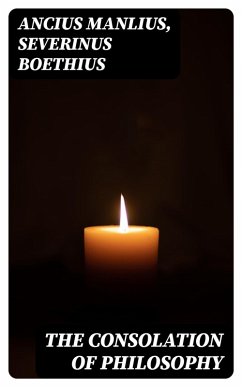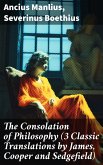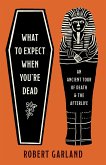The Consolation of Philosophy offers readers an intricate tapestry of philosophical dialogue and poetic expression, weaving together themes of fate, fortune, and the search for truth in the face of adversity. Through a harmonious blend of prose and verse, this collection reflects the intellectual and cultural milieu of the early Middle Ages, capturing a profound existential inquiry that transcends its time. A standout piece within this anthology is the allegorical conversation between a philosophical guide and a prisoner of circumstance, exploring notions of inner peace and wisdom. Ancius Manlius Severinus Boethius, as the singular voice behind this work, bridges ancient philosophies with the burgeoning scholastic thought of his era. His exploration of Neoplatonic and Stoic ideas injects relevance into ongoing debates of divine providence and human freedom. In aligning with the broader currents of medieval scholarship, Boethius encapsulates a spectrum of emotions and insights, rendering his philosophical musings accessible and engaging to both contemporary and modern audiences alike. This anthology invites readers to engage with a synthesis of philosophical reflections and lyrical beauty, offering multiple perspectives within a singular vision. It serves as an invaluable resource for those seeking to delve into medieval thought, not only for its historical significance but also for its enduring capacity to provoke introspection and inspire dialogue across the centuries.
Dieser Download kann aus rechtlichen Gründen nur mit Rechnungsadresse in A, B, BG, CY, CZ, D, DK, EW, E, FIN, F, GR, H, IRL, I, LT, L, LR, M, NL, PL, P, R, S, SLO, SK ausgeliefert werden.









